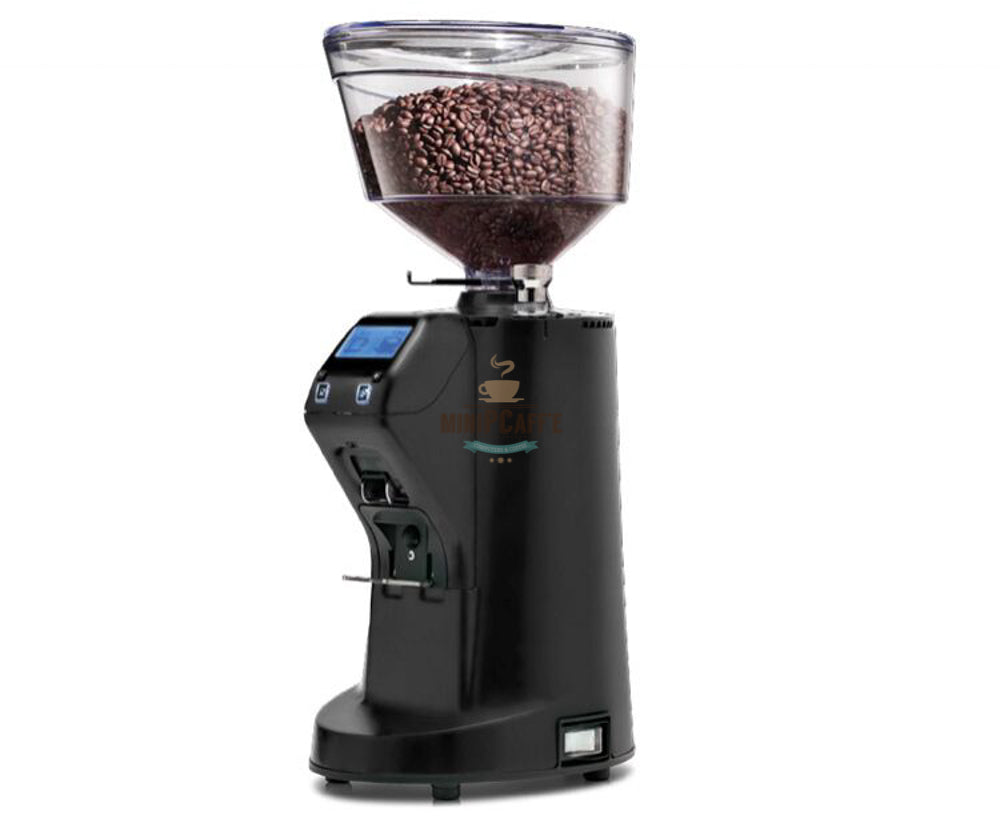Industrial Coffee Grinder for Mass Brewing: What You Need to Know
Industrial Coffee Grinder for Mass Brewing: What You Need to Know
Blog Article
Industrial Coffee Grinder Guide: Boost Effectiveness and Quality
In the affordable landscape of coffee manufacturing, picking the right commercial coffee mill plays a crucial duty in boosting both efficiency and product high quality. Comprehending the nuances of different mill kinds and vital attributes-- such as personalized work settings and durable construction-- can considerably influence the last taste account of the coffee.
Comprehending Grinder Types
When picking a commercial coffee mill, comprehending the different types offered is vital for maximizing both taste extraction and operational effectiveness. The two primary kinds of mills are blade mills and burr grinders. Blade grinders make use of sharp blades that slice coffee beans into inconsistent sizes, bring about uneven extraction and possibly unfavorable flavors. While blade grinders are typically extra cost effective and appropriate for small operations, they are generally not recommended for industrial usage.

Eventually, picking the right sort of grinder is important to keeping top quality and performance in coffee manufacturing, making it critical for organizations to invest in top quality burr grinders for optimum results.
Trick Attributes to Think About
Picking an industrial coffee mill requires careful factor to consider of several essential functions that can substantially influence both efficiency and the general coffee experience. Among the main elements to assess is the grinding mechanism. Burr grinders are generally chosen over blade mills, as they offer a consistent grind size, which is essential for optimal extraction and taste.
An additional vital feature is the grinder's capacity. A versatile grinder with several setups permits you to customize the work dimension to various developing techniques, improving the coffee's flavor account.
The building material also contributes in toughness and upkeep. Stainless steel components typically provide longevity and are less complicated to clean up, which is necessary for preserving hygiene standards. Finally, review the mill's noise degree, specifically in a hectic coffee shop or manufacturing atmosphere, where extreme noise can be turbulent. Purchasing a mill that stabilizes these functions can considerably enhance both operational efficiency and the top quality of the coffee served.
Optimizing Grinding Refine
To attain the most effective lead to coffee preparation, enhancing the grinding procedure is crucial. The grind size substantially influences extraction, taste, and overall high quality of the made coffee. Different developing approaches require certain grind dimensions; for instance, espresso requires a great work, while French press demands a coarse structure. Recognizing the relationship between grind dimension and brewing method is the initial step in optimization.


Furthermore, checking the grinding rate can optimize the process. Slower grinding typically creates much less warm, preserving delicate flavors and aromas. Conversely, faster grinding may generate excessive heat, adversely influencing the coffee's top quality.
Upkeep and Care Tips
Proper upkeep and treatment of commercial coffee mills are vital for making certain optimum efficiency and durability. Routine cleaning is the foundation of upkeep; deposit build-up can impact flavor and grinding performance. It is recommended to clean the grinder after each usage, cleaning down the outside and removing any kind of coffee premises from the burrs.
Furthermore, examine the grinding burrs for wear and tear. Dull burrs can compromise work uniformity, so they ought to be replaced as essential. Industrial Coffee Grinder. Occasionally adjusting the grinder is also crucial, as this keeps the preferred work dimension for different developing approaches
Lubrication of relocating parts must be done according to the producer's specifications, as this reduces friction and prolongs the life of the equipment. It is important to use food-grade lubes to make certain security and conformity with wellness regulations.
Last but not least, maintain the mill in a stable and dry atmosphere to stop corrosion and rust. By sticking to these upkeep and care pointers, operators can boost the efficiency of their commercial coffee grinders while guaranteeing premium output and prolonged functional life.
Roi Analysis
Reviewing the roi (ROI) for industrial coffee grinders is critical for services looking for to maximize their coffee production capabilities. A detailed ROI evaluation helps figure out the economic viability of buying our website premium grinders, enabling organizations to weigh the initial expenses versus potential gains.
Analyze the acquisition cost of the mill, including installation and any kind of essential modifications to existing framework. High-performance mills typically lead to decreased grinding time and increased throughput, which can dramatically boost efficiency.
Additionally, take into consideration the effect on product top quality. Industrial Coffee Grinder. Superior mills yield an even more constant work dimension, which can enhance taste profiles and customer satisfaction, inevitably driving sales. By boosting the top quality of the end product, services can justify greater pricing, causing boosted revenue
Final Thought
In summary, a commercial coffee mill plays a critical role in boosting both efficiency and item quality within coffee production. By picking high-quality burr grinders outfitted with vital attributes such as adjustable grind setups and resilient building and construction, companies can make certain optimal flavor removal. Normal upkeep is important for maintaining mill efficiency and making the most of client contentment. Inevitably, the calculated financial investment in a reliable grinder contributes dramatically to enhanced income and competition in the coffee market.
In the competitive landscape of see here now coffee production, choosing the best industrial coffee grinder plays a pivotal role in boosting both effectiveness and product top quality. The 2 main types of mills are blade grinders and burr grinders. Within the burr mill group, there are flat burr grinders and cone-shaped burr grinders, each with its advantages. Burr mills are usually liked over blade grinders, as they give a regular work size, which is essential for optimal removal and taste.
In recap, a commercial coffee grinder plays a pivotal duty in improving both efficiency and product top quality within coffee manufacturing.
Report this page